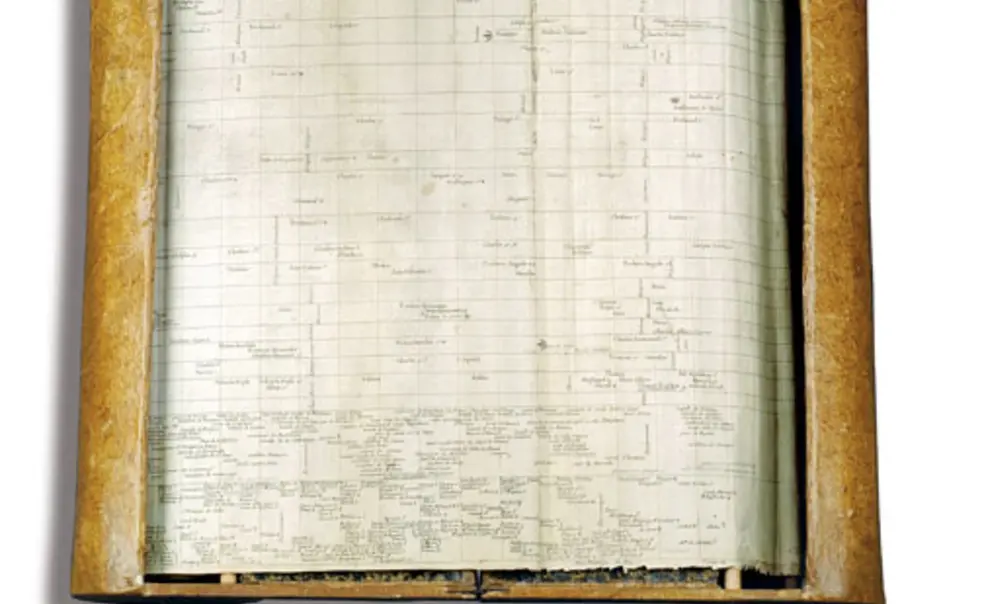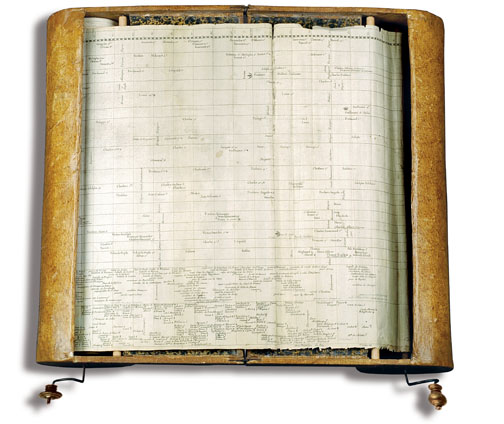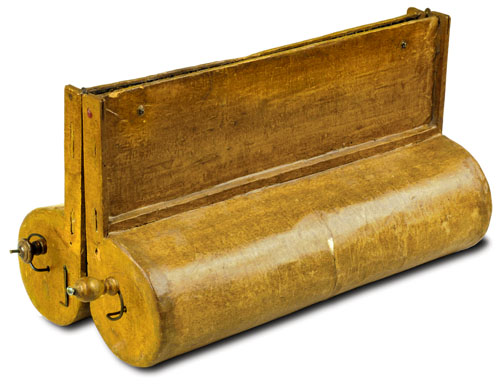From Princeton’s vault: A chronographic machine
What: Turn the wheels of this curious device, and the history of the world rolls by. Invented in France in 1753, it delighted Denis Diderot, who featured it in his famous Encyclopédie.
The machine was the brainchild of physician Jacques Barbeau-Dubourg, amateur historian and the first French intellectual to promote the cause of American independence. When John Adams dined with the jolly bachelor at his Paris home, he reported seeing paintings of historical episodes from Greece and Rome. Benjamin Rush 1760 found Barbeau-Dubourg translating patriotic American letters for a French audience and praising their author, John Dickinson, as more eloquent than Cicero.
On a Cartesian grid 54 feet long, famous people are highlighted as history passes along – including assassins, debauchers, bigots, and fools. Handwritten notations, probably by Barbeau-Dubourg himself, include Benjamin Franklin’s 1752 kite experiment. Barbeau-Dubourg was Franklin’s closest French ally, and he published the Philadelphian’s discoveries in his medical journal.
The clever doctor died penniless, mourned by friends who recalled how he had predicted the American Revolution and even drew up a constitution for the new nation.
Where: Rare Books Division, Department of Rare Books and Special Collections, Princeton University Library














No responses yet